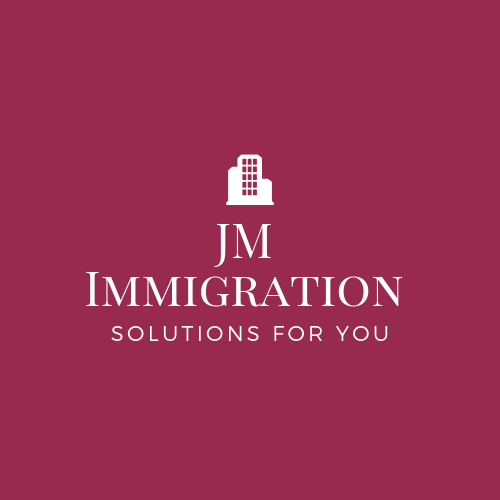Frequently Asked Questions (FAQs)
Express Entry
Express Entry
What do I need to create an Express Entry profile?
You can find everything you need to complete an Express Entry profile on IRCC website.
Can I have more than one Express Entry profile?
No. You may only have one profile at a time. This is set out in Canada’s immigration law.
Creating more than one profile will not give you a better chance at being invited or allow you to be invited under a different program.
Note: Completing an Express Entry profile is the first step to immigrate to Canada permanently as a skilled worker. Completing an Express Entry profile does not guarantee that you will receive an Invitation to Apply for permanent residence. An Invitation to Apply for permanent residence will be based on your score and rank in the Express Entry pool using the Comprehensive Ranking System.
Can I be eligible for more than one program under Express Entry?
Yes. Depending on the information in your profile, you may be eligible for more than one program through Express Entry.
In that case, you will be invited to apply for one program based on this order:
Canadian Experience Class (CEC),
Federal Skilled Worker Program (FSWP), then
Federal Skilled Trades Program (FSTP).
For example:
If you met the criteria for all three programs, the system would send you an invitation to apply for the CEC.
If you met the criteria for CEC and FSWP, you would also get an invitation to apply under the CEC.
If you met the criteria for FSWP and FSTP, you would get an invitation to apply under FSWP.
You can’t choose which program you are invited to apply for. The system will sort profiles based on the information you enter.
If you decline the invitation, the system will not re-invite you under the next program. You will go back in the pool, and if we invite you again, the same order will apply.
How do I find my National Occupation Classification (NOC) code?
Your National Occupation Classification (NOC) code is the number the job is listed under in Canada’s official job classification system. Find the NOC code and title for a job.
Do I need an Educational Credential Assessment to apply under Express Entry?
To get points for your education under the Comprehensive Ranking System, you must either:
have been educated in Canada, or
have a valid Educational Credential Assessment (ECA) for immigration purposes for your completed foreign education.
What kind of language test can I use for Express Entry?
IRCC only accept these tests for Express Entry:
For English
CELPIP: Canadian English Language Proficiency Index Program – CELPIP-General
IELTS: International English Language Testing System – General Training
For French
TEF Canada: Test d’évaluation de français
TCF Canada : Test de connaissance du français
Find out more about language testing.
How do I update my Express Entry profile before submitting it?
To update your profile, follow these steps:
Go to the main page of your account
Scroll down to “Continue my profile / application, not yet submitted”
Choose the line with your Express Entry Profile
Click “Continue Profile” button
I’m in the Express Entry pool. How can I look for a job in Canada?
Note: As of June 6, 2017, It is now optional to create a Job Match account with Job Bank.
To start your job search, you can
create a Job Match account with Canada’s Job Bank
promote yourself to employers in Canada using private sector job boards
You can use both while you are in the Express Entry pool. Once you come to Canada, you can keep using these services if you still need to find a job.
Study Permit
Study Permit
Do I need a permit to study in Canada?
Most foreign nationals need a study permit to study in Canada. Some people in specific situations may not. Learn more about who needs a study permit.
You should apply for a study permit before coming to Canada. Only some people can apply for a study permit from within Canada. Before you apply, you must have a letter of acceptance from a designated learning institution in Canada.
How you can apply for a study permit depends on if you’re applying from outside Canada, inside Canada or at the port of entry. Find out what options are available for you.
Your study permit isn’t a travel document. Your permit lets you study in Canada, but you may also need a visitor visa (temporary resident visa) or an Electronic Travel Authorization (eTA) to enter Canada. If we approve your study permit, we’ll also give you either a visitor visa or an eTA, depending on which document you need. This document will let you enter Canada.
Find out more about how to apply for a study permit.
How do I apply for a study permit?
In most cases, you must apply for a study permit before coming to Canada. Make sure you have a letter of acceptance from a designated learning institution in Canada before you apply.
How you can apply for a study permit, depends on where you’re applying from. Answer a few questions to find out how you can apply for a study permit.
When should I apply for my study permit?
Apply as soon as you receive your letter of acceptance. The times needed to process your application may vary among visa offices. Check our application processing times for details.
How do I pay for a study permit?
You must pay a processing fee with your application. For details, visit the Pay your fees page to learn about the methods of payment accepted by Canadian visa offices.
How long will it take to process my study permit application?
Processing times vary. It depends on the type of application you submit, and where it is processed. IRCC lists processing times for applications submitted inside and outside Canada. We update this section regularly, so visit often to get the latest details.
As a foreign student, can I return home or travel outside Canada while studying?
Yes. However, your study permit is not a travel document. It doesn’t give you the right to travel to or enter Canada. Along with your permit, you may need:
Depending on where you’re from, you may only need your passport. Make sure you know which document you need to travel to and enter Canada.
Having the travel document you need also doesn’t guarantee you’ll be allowed back into Canada. You still must show the border services officer that you meet all the requirements before we’ll let you re-enter.
Do you need a visitor visa to enter Canada
Make sure the one you have will still be valid when you return to Canada. If it won’t be valid, you must apply to extend it before you leave Canada.
Read more about travelling while you are a student.
Visit Visa
Visit Visa
How long can I stay in Canada as a visitor?
Most visitors can stay for up to 6 months in Canada.
At the port of entry, the border services officer may allow you to stay for less or more than 6 months. If so, they’ll put the date you need to leave by in your passport. They might also give you a document.
If you don’t get a stamp in your passport, you can stay for 6 months from the day you entered Canada or until your passport expires, whichever comes first.
If you need a stamp, you can ask a border services officer for one. If you arrive at an airport that uses primary inspection kiosks, ask the border officer after you finish at the kiosk.
If you want to stay longer than your authorized stay, you should apply for an extension at least 30 days before the authorized end of your stay.
Do I need to apply for both a visitor visa and an eTA?
No. If you plan to travel to Canada, you need a valid visitor visa OR a valid eTA.
The one you need depends on:
the type of travel document you will travel with;
the country that issued your travel document;
your nationality; and
how you will travel to Canada.
Before you apply, answer a few questions to find out what you need to travel to Canada.
If you already have a valid Canadian visitor visa you don’t need to apply for an eTA – even if you’re eligible for an eTA. You can travel with your visa until it expires.
If you apply for an initial work or study permit before you travel to Canada, you’ll get a visa or an eTA automatically once your work or study permit application is approved. You don’t need to apply for a visa or an eTA, or pay extra fees.
If IRCC issues you a visa, it will be stamped on your passport.
If IRCC issues you an eTA, your eTA number will be included in the letter of introduction, IRCC will send you when your study or work permit is approved. Keep this number in case you need to contact IRCC about your eTA.
My application for a visitor visa was refused. Should I apply again?
No. If your application was refused, applying again with the same information, even with an immigration or travel agent, will not change this decision.
Your application may be refused because:
the official deciding your case has reason to believe you’ll stay in Canada beyond your authorized stay
you’re inadmissible to Canada
Applying a second time will not change this decision. It will only cost you more money and increase processing times for other applicants. However, if your situation changes, you may apply again with your new information.
Examples of your situation changing include:
you’ve applied for criminal rehabilitation and were approved
you’re eligible for deemed rehabilitation
you’re inadmissible but are applying for a temporary resident permit
you were inadmissible for medical reasons, but those reasons have since changed
I am currently living in or visiting a country that I am not a citizen of. Can I apply for a visitor visa at the local visa office?
If you are applying on paper IRCC recommends that you apply for a visa from your home country. However, if you are legally admitted to the country you are currently in, you can apply at your nearest visa application centre (VAC). The VAC can help make sure your application is complete and that all proper documentation is included. You must state clearly on your application why you have not applied in your normal country of residence.
You can also apply for a visa online.
What’s the difference between a visitor visa and a visitor record?
A visitor visa (also known as a temporary resident visa) is an official document citizens from visa-required countries need to get to travel to and enter Canada as a visitor for up to 6 months.
IRCC sticks the visitor visa in your passport.
It shows that you meet the requirements to enter Canada.
It includes the date by which you must arrive in Canada.
The date is not an expiry date for your stay in Canada.
If you apply for a study or work permit for the first time, you’ll automatically get a visitor visa when we approve your application.
A visitor record is a document that a border services officer may issue to you to extend or restrict your stay in Canada. If you want to stay in Canada for more than 6 months, you have to tell the border services officer.
You may also get a visitor record after IRCC approves your application to extend your stay or restore your status. A visitor record is issued either by the Canada Border Services Agency or Immigration, Refugees and Citizenship Canada.
You need to apply for a visitor record when:
you first arrive at the port of entry and you know you want to stay longer than 6 months; or
you’re in Canada and decide you want to stay longer.
You must apply at least 30 days before your authorized stay in Canada expires.
It’s an independent document (not placed in your passport).
It includes an expiry date for your stay in Canada.
That’s the date by which you must leave Canada.
Source:IRCC







